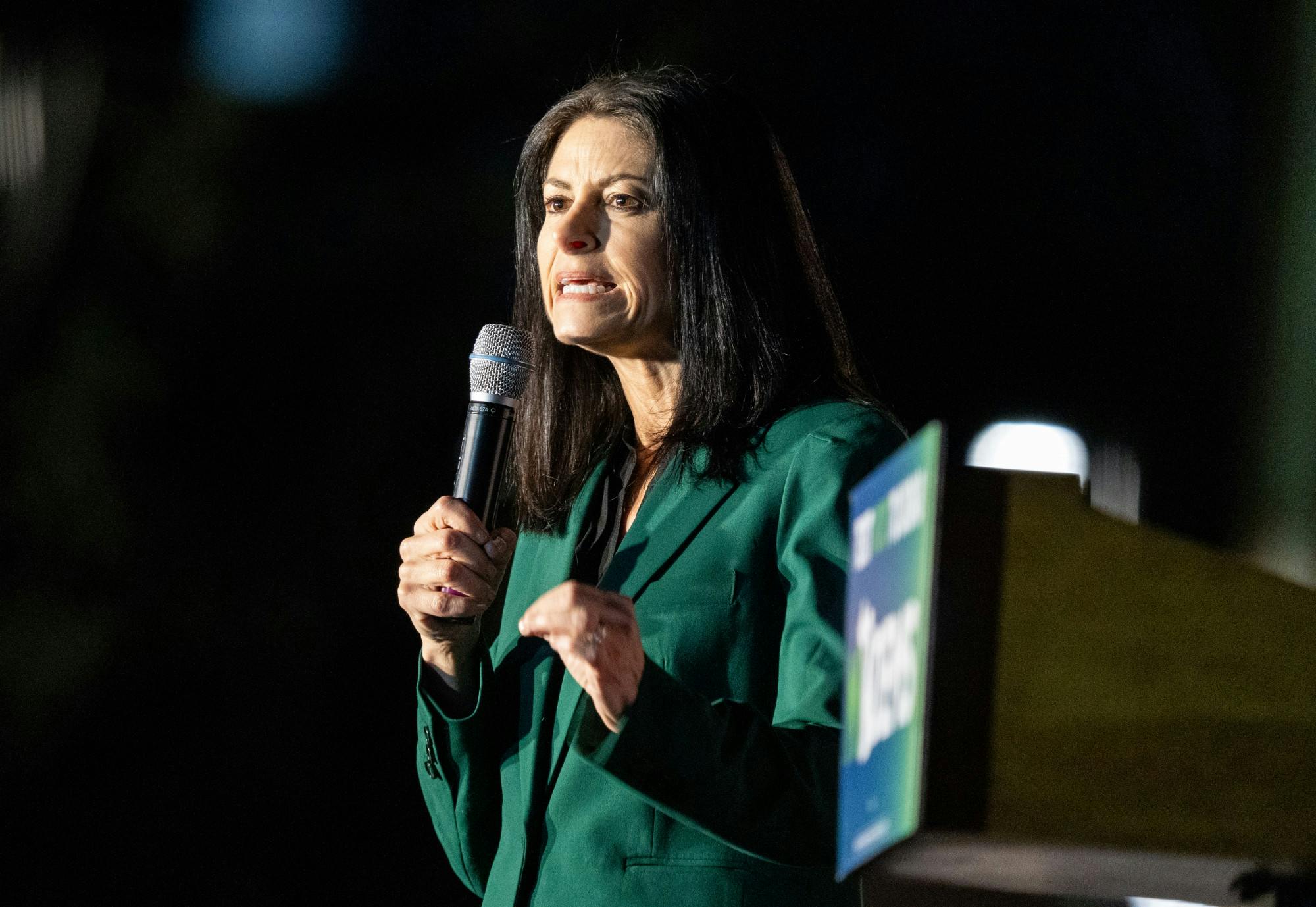Michigan’s attorney general is supportive of Michigan State University’s refusal to publicly release the infamous Larry Nassar documents during her department’s investigation into them, her office said Tuesday.
The documents — which relate to the university's handling of years of unchecked sexual abuse by Nassar, a disgraced ex-MSU doctor — were withheld from investigators for years.
In March 2024, however, the university began sending them to Michigan Attorney General Dana Nessel’s office.
During Nessel's investigation, the university has said it will not allow the public to see the records.
In responses to Freedom of Information Act requests from The State News, MSU argued that the records fall under an exemption which shields documents that would "interfere with law enforcement proceedings."
The attorney general voiced support for that decision in a statement released to The State News Tuesday.
“The records are related to an ongoing investigation being conducted by the department and it is our belief that the public release of these documents at this time would interfere with our investigation,” the statement says.
MSU’s decision to apply the exemption was made more than a month ago and without the consultation of the attorney general, a spokesperson told The State News.
This new support from the attorney general could greatly bolster that position.
MSU previously had little to prove that the release of the records would meet the legal standard for exemption: That public release provably “would” hurt an investigation, not that it could.
MSU did initially release some of the records, though later changed its mind.
The university sent some of the records to a doctor who studied in Nassar’s department. He sought records that mentioned himself.
When The State News asked for the records a few weeks later, the university “changed course” and decided release would hurt the attorney general’s investigation, a spokesperson said.
The university has now said that it will deny all requests for the documents until the attorney general’s investigation is complete.
Steve Delie — a FOIA attorney and director of transparency and open government at the Mackinac Center for Public Policy — told The State News that reversal raises questions about if MSU is fairly applying the exemptions to all requesters.
"I don't see how you can say the record won't interfere one day, and then decide they will the next day," he said. "It raises questions about if MSU is processing these based on who the requestor is, which is generally not appropriate."
The State News plans to appeal the decision to MSU President Kevin Guskiewicz. Under Michigan's open records laws, he will have ten days to review the general counsel's decision and decide whether to uphold the denial.
The previously-privileged documents include thousands of pages of email and text communications to and from MSU leaders and attorneys, records of internal complaints and investigations regarding Nassar, and personnel files of those who worked with and above Nassar during his time at MSU.
Nassar is currently serving an effective life sentence for numerous county charges of assaulting young women and girls under the guise of medical treatment and federal child pornography charges.
Many of his offenses occurred during his work as an MSU doctor. Subsequent lawsuits and accounts from survivors have alleged that MSU’s administration and board failed to protect his victims and ignored reports of abuse.
The records were sought for years by Michigan's attorneys general, in hopes of investigating "how and why the university failed to protect students" from Nassar's abuse for so long.
For years, MSU’s board withheld the documents from investigators, arguing they were subject to attorney client privilege. It voted unanimously to reverse that decision in December. The transfer of the documents began in March and ended last month.







